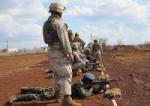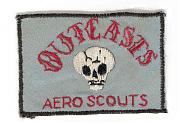Hi Maggie,
I'm glad you took an interest in this from the perspective you offer. I'll try and answer a few of these.
In most cases civilians can access military posts if they desire to do so - its generally a process of registering at the gate and getting a 24 hour pass. In the larger scale of things you get folks who like to live on and some who like to live off post/base - depends on how they view the housing, on post housing availability, and perhaps a desire to invest in real estate ( I have some friends who buy a house every post they go then try and rent them out.) My wife likes to live on post - this is in part due to the challenges of PCSing every so often and getting integrated so she (and our family of 4 children) can resume a more normal life as quickly as possible. You don't always get to pick when you PCS - it comes with the orders which are generated based off of circumstances derived from Army requirements. There often is no time for the military spouse to help the family get integrated - particularly now - units have only one speed right now - wide open. The spouse checks in to his new unit and might be deployed, sent TDY or involved in field training within 5-10 days - leaders are expected to suck it up - comes with the territory. The families are also wide open - by living on post some of that is mitigated because there are generally at least a few families who are already plugged in and willing to help out - they've been there, so they understand.How do us civilians get the chance to help support/mainstream (?, peculiar choice of words, given the usage in other fields)/or in general treat the military families as what they are, a part of our society, when for the vast majority of us "the military" is an abstract hidden away on a base few of us can even visit?
There are differences here - but I'll have to address why on a case by case basis. First, I have several friends and family members working as contractors in the ME - they are compensated much differently, can quit if they choose, and live under different rules and conditions. From my perspective - this is very different.Try and remember that civilian families often have the same or similar stresses that military families do--even in wartime. There are civilian employees of many companies in the ME, for instance. Or even closer to home--my dad worked for a utility company and was sent, more than once, to work on construction at other plants away from home. A brother in law moved his family three times for an employer because jobs are tight in his field. Families of police and firefighters never know if their loved ones are going to come home each day. They die even when there's no war on. Coming home is not a given for anyone, comes to that. Traffic accidents claim over 50,000 civilians each year. A sister-in-law was killed in one four months after the wedding--an innocent bystander in a high speed police chase.
Yes civilian families do have to move to find work - my wife's father had to - they moved often - she hated it, and it caused stress - but they were generally together, not separate.
My own father is a retired police officer - 25 years with Nashville Metro PD - lots of that spent as a patrol officer - lots of danger there - but he'll tell you his line of work and mine are different - he would come home at the end of his shift, sleep in his bed, touch base - he had long hours - often spending almost a second shift in court- add in the 2nd job he kept to pay for things and did not see him nearly as much as I'd have liked - it eventually cost him his marriage. Police Officers, Firemen and other public servants are also not compensated justly.
Yes civilians do get killed here - driving in today's traffic with the way people abuse drugs, get consumed with their own world and an overall lack of common courtesy makes for a bad time - but when I get on 495, nobody is shooting at me, has an IED laid out in an ambush, is willing to drive a vehicle filled with explosive into me, etc. Also if the people do get in an accident, its unlikely that there is an RPG ambush waiting and that if they are taken captive they will get their heads cut off. It gives a whole new twist to the way you drive. Generally when people shoot at you or trigger and IED on you - its because you were the intended target.
All of these things happen in very compressed times with military families (in some cases all at once). When you get one, the current (since 2003) and quite possibly long term conditions in the world will require these families to line up and do it again, and again, and again - until either the military spouse gets out, retires, is killed, or the world becomes peaceful.
I'm not trying to be trite, but this is our perspective on how the world works. If you ask a small percentage of the population and their families to take on these circumstances for more then just a one time shot - or if we desire to build and sustain a professional military that is the best at what is does, takes the oath to defend the constitution and is willing to go where and when asked for the long term - its different then what we asked prior to 9/11.
Even within the military there are different standards of "quality of life" -or at least the perception of it - there are lots of people that might be willing to do some jobs, but not others - I know of no other job that suffers more at peace and at war then the rifleman in the ground services (or someone re-tasked to that job), but who in this war is the most critical in the aggregate - just one of many jobs where we need the best and brightest.
I whole-heartedly agree with this - and we don't want to isolate ourselves by living within the military posts - its just the way we mitigate the effects of our profession on those we love. We try and engage the public where ever possible to promote understanding and keep the public informed on the issues which effect us all - in fact this is one of the reasons I write on this site. We cannot exist as a professional volunteer force without public support - we want the brothers, sisters, sons, daughters, fathers and mothers to take pride in their nation's military and support us in recruiting, funding, inter-action - we are your military. The issues of integration and segregation between the American general public and its military are probably expected given the nature of a professional, all volunteer military that has been at war for awhile and will probably remain so for some time to come. There is blame to go around for all.Yes, it's different being a soldier. But the solution is not to further isolate the military and refuse possible ways of building understanding between the military and the rest of us by stating that integration of military families within civilian society is bad for the families because we can't understand at all what military families go through.
Attracting and retaining the best people and the support of their families will remain a challenge - particularly when they have proven what a value they can be to any organization they decide to work within, have amazing self-confidence, and are openly courted by outside organizations. They see the incredible stress placed on their families and can offer no clear rational to them as to why they should stay when there are clear options which starkly contrast with their current quality of life, their absence and the constant circle of worry that spouses and children must undergo - with no end in sight. Within our community now - members, spouse and children all know lots of service members killed or severely wounded and the wives and children devastated by those deaths and wounds. For as big as the military is - its really a small community - we've gotten to know death better then we ever thought we would pre-9/11. Its weird - you know what you are signing on to do, you know that armies go to war, your told early on in your career by older vets who went to war "to look around the room - some of you will be killed while you serve", but you really cannot fathom it - and neither can your families - until the first or second friend or acquaintance is killed, then you start to understand what war costs - you can put a face on it. My own wife told me its like the soldier's wife and family dies too because they are removed from that military family - move back home (wherever that might be) and start over. Our spouses are strong but they all live in fear of that image of somebody showing up in a Class A uniform, and feel guilty when the car drives on - my wife told me a story about how her and what I called the bus-stop gang (the moms coffee clutch who put their kids on the bus in base housing) noticed 2 officers in class As trying to find a house in the neighborhood - and the range of emotions that they went through as the 2 men eventually drove to a street over. The last emotion - the one following rage, anxiety, fear, and relief was embarrassment - how dare they thought that they should think for one minute those men might be coming to tell them their husband or the friend of a husband might have been killed. Since the war began - scenes like this play out wherever there are deployed soldiers & sailors, airmen and sailors serving in OIF/OEF - this is a daily occurrence not in response to an event - just daily life - the scale has a quality unlike anything else. There are few jobs that require families to cope with that day in and day out while the media covers every second of it and adds to the stress.
I just wanted you to know how our perspectives are shaped. Glad your on the SWC.
Best Regards, Rob






 - we just assume we don't need it anymore - when we do, we start looking around for somebody to blame.
- we just assume we don't need it anymore - when we do, we start looking around for somebody to blame.


 but I've come across too many who don't on both sides. It makes perfect sense for many reasons but again, for many reasons it makes it hard for the general population to feel connected--and what I'm talking about here is pretty much all a discussion of emotional perceptions which are rarely amenable to logic.
but I've come across too many who don't on both sides. It makes perfect sense for many reasons but again, for many reasons it makes it hard for the general population to feel connected--and what I'm talking about here is pretty much all a discussion of emotional perceptions which are rarely amenable to logic. , frankly I don't see what to do about it. My comment on this is NOT directed at this forum, or at any entity in particular, actually. "The public" in large enough numbers is not getting the message, and the old messengers--ie, newspapers/TV--are flubbing it. While the Internet does allow sites such as these, finding them is also a matter of already knowing what to look for. The first requirement is NOT asking a question, it is KNOWING a question needs to be asked. Take the COIN manual. I would venture a quess that most people have no idea such a thing even exists, never mind what it is. I had no idea either, until I started playing leap blog this summer after a chance comment on a totally unrelated forum let me know milblogs existed.
, frankly I don't see what to do about it. My comment on this is NOT directed at this forum, or at any entity in particular, actually. "The public" in large enough numbers is not getting the message, and the old messengers--ie, newspapers/TV--are flubbing it. While the Internet does allow sites such as these, finding them is also a matter of already knowing what to look for. The first requirement is NOT asking a question, it is KNOWING a question needs to be asked. Take the COIN manual. I would venture a quess that most people have no idea such a thing even exists, never mind what it is. I had no idea either, until I started playing leap blog this summer after a chance comment on a totally unrelated forum let me know milblogs existed. 



Bookmarks